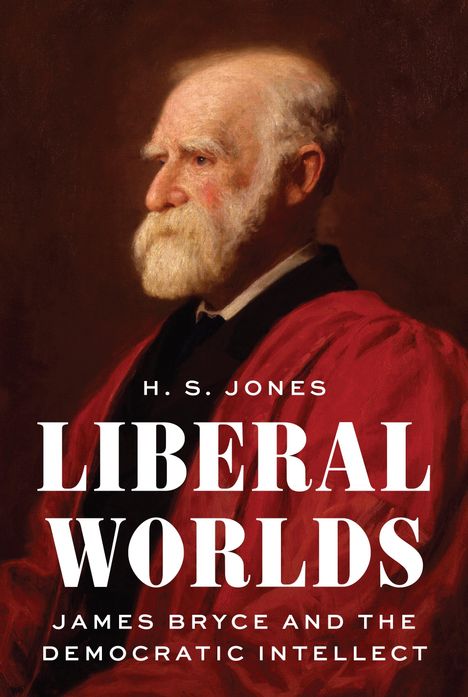H. S. Jones: Liberal Worlds, Gebunden
Liberal Worlds
- James Bryce and the Democratic Intellect
(soweit verfügbar beim Lieferanten)
- Verlag:
- Princeton University Press, 11/2025
- Einband:
- Gebunden
- Sprache:
- Englisch
- ISBN-13:
- 9780691180113
- Artikelnummer:
- 12245407
- Umfang:
- 464 Seiten
- Gewicht:
- 804 g
- Maße:
- 243 x 168 mm
- Stärke:
- 36 mm
- Erscheinungstermin:
- 18.11.2025
- Hinweis
-
Achtung: Artikel ist nicht in deutscher Sprache!
Klappentext
The intellectual biography of a Victorian Liberal polymathJames Bryce (1838-1922) was a leading figure in Britain's Liberal Party and a distinguished historian, a versatile scholar-politician who moved seamlessly between academia and politics. He was, among many other things, a cabinet minister and a popular ambassador, an expert on American politics and on Roman law, an advocate for the Armenian people and an architect of the League of Nations, a world traveller and a climber of Mount Ararat. In Liberal Worlds, Stuart Jones offers an intellectual biography of Bryce, tracing a Scots-Ulster Presbyterian's assimilation to the increasingly multiconfessional Victorian state, and a late Victorian Liberal's encounter with the wider world. Jones shows how a polymathic intelligence grappled with a dizzyingly wide range of concerns and issues, including the challenges of democracy and race relations, the rise of modern universities and the reconstruction of the international order after World War I. In mapping the evolution of Bryce's thought, Liberal Worlds illuminates the international intellectual networks and the many places across the globe that shaped his thinking. Jones considers, for example, why a man who had a lifelong revulsion against slavery seemed to accept racial segregation in the American South; how a vigorous activist for girls' and women's education became a tenacious parliamentary critic of women's suffrage; and why, over the objections of his Ulster Presbyterian family, he backed Irish home rule. Above all, Jones rescues Bryce-immensely influential in his time, now little remembered-from being consigned to a historical pigeonhole, restoring him to the centre of late nineteenth- and early twentieth-century debates over the nature of democratic politics.

